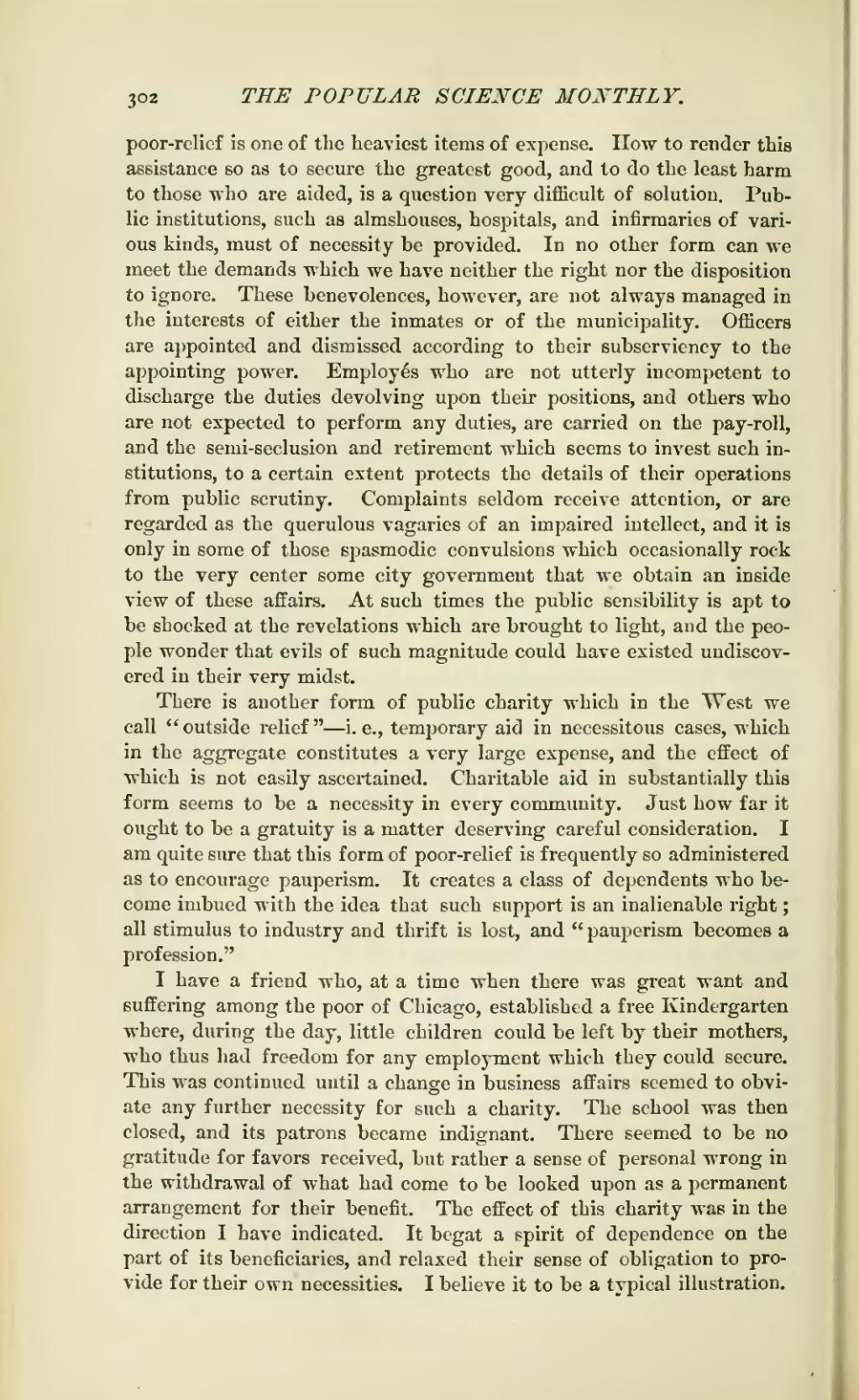poor-relief is one of the heaviest items of expense. How to render this assistance so as to secure the greatest good, and to do the least harm to those who are aided, is a question very difficult of solution. Public institutions, such as almshouses, hospitals, and infirmaries of various kinds, must of necessity be provided. In no other form can we meet the demands which we have neither the right nor the disposition to ignore. These benevolences, however, are not always managed in the interests of either the inmates or of the municipality. Officers are appointed and dismissed according to their subserviency to the appointing power. Employes who are not utterly incompetent to discharge the duties devolving upon their positions, and others who are not expected to perform any duties, are carried on the pay-roll, and the semi-seclusion and retirement which seems to invest such institutions, to a certain extent protects the details of their operations from public scrutiny. Complaints seldom receive attention, or are regarded as the querulous vagaries of an impaired intellect, and it is only in some of those spasmodic convulsions which occasionally rock to the very center some city government that we obtain an inside view of these affairs. At such times the public sensibility is apt to be shocked at the revelations which are brought to light, and the people wonder that evils of such magnitude could have existed undiscovered in their very midst.
There is another form of public charity which in the West we call "outside relief"—i.e., temporary aid in necessitous cases, which in the aggregate constitutes a very large expense, and the effect of which is not easily ascertained. Charitable aid in substantially this form seems to be a necessity in every community. Just how far it ought to be a gratuity is a matter deserving careful consideration. I am quite sure that this form of poor-relief is frequently so administered as to encourage pauperism. It creates a class of dependents who become imbued with the idea that such support is an inalienable right; all stimulus to industry and thrift is lost, and "pauperism becomes a profession."
I have a friend who, at a time when there was great want and suffering among the poor of Chicago, established a free Kindergarten where, during the day, little children could be left by their mothers, who thus had freedom for any employment which they could secure. This was continued until a change in business affairs seemed to obviate any further necessity for such a charity. The school was then closed, and its patrons became indignant. There seemed to be no gratitude for favors received, but rather a sense of personal wrong in the withdrawal of what had come to be looked upon as a permanent arrangement for their benefit. The effect of this charity was in the direction I have indicated. It begat a spirit of dependence on the part of its beneficiaries, and relaxed their sense of obligation to provide for their own necessities. I believe it to be a typical illustration.

